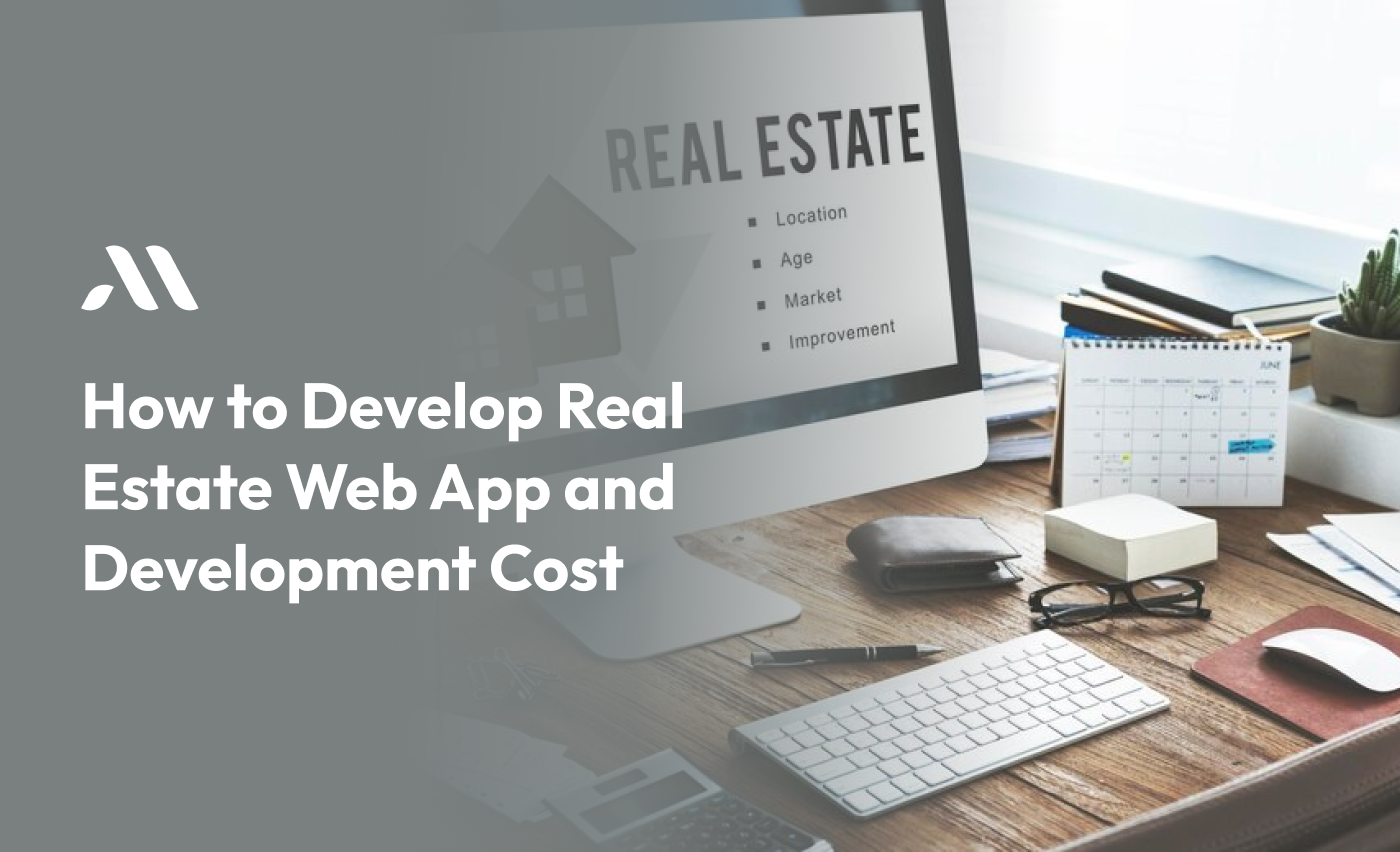In today's digital world, having a Real Estate Web App is important for any real estate business owner. A Real Estate Web Application can simplify property listings, enhance user experience, and ultimately boost your business. This article will guide you through the process of developing a Real Estate Web App and give you insights into the related costs.
“Success in real estate comes down to two factors: taking care of and valuing the customer.” – Michael Miedler
What is a Real Estate Web App?
A Real Estate Web App is an online platform that helps users browse, buy, sell, or rent properties. It’s more than just a website; it’s a dynamic application that offers various features like property search, virtual tours, customer inquiries, and more. For real estate business owners, a Real Estate Web Application can make managing properties and interacting with clients easier and more efficient.
Why You Need a Real Estate Web App
The real estate market is highly competitive, and a Real Estate Web App can give you an edge. Here’s why:
- Accessibility: A Real Estate Web App helps potential buyers to browse properties 24/7 from anywhere in the world.
- Efficiency: It reduces the workload by automating tasks like property listings, customer inquiries, and bookings.
- Customer Experience: A well-designed Real Estate Web Application enhances the user experience with features like virtual tours, interactive maps, and advanced search filters.
- Brand Building: Having a professional Real Estate Web App showcases your business as modern and reliable, building trust with your clients.
Also Read - Guide to Real Estate Project Management Software and Development
Key Features of a Real Estate Web App
When you develop a Real Estate Web App, you should consider including the following features:
User-Friendly Interface: Your Real Estate Web Application should be easy to navigate. Users should be able to search for properties, filter results, and view details effortlessly.
Property Listings: A comprehensive property listing feature is important. It should include high-quality images, property descriptions, prices, and contact details.
Advanced Search Filters: These filters help users find properties that meet their specific needs, such as location, price range, property type, and more.
Virtual Tours: Virtual tours help users to view properties online as if they were there in person. This feature is becoming increasingly popular in Real Estate Web App Development.
Interactive Maps: An interactive map helps users see the exact location of properties, nearby amenities, and more.
Customer Inquiry Forms: Make it easy for potential buyers to contact you with inquiry forms that are simple to fill out.
Secure Payment Gateway: If your Real Estate Web App allows for online bookings or payments, a secure payment gateway is crucial.
Content Management System (CMS): A CMS helps you to easily update property listings, add new content, and manage the app without technical expertise.
Mobile Responsiveness: Ensure your Real Estate Web App is mobile-friendly, as many users will access it from their smartphones.
Analytics and Reporting: Integrated analytics can help you track user behavior, property views, and other metrics to improve your app’s performance.
Steps to Develop a Real Estate Web App
Developing a Real Estate Web App involves several steps. Here’s a simplified guide:
1. Define Your Goals
Start by outlining what you want to achieve with your Real Estate Web Application. Do you want to focus on property sales, rentals, or both? What features are most important to your users? Clear goals will guide the entire development process.
2. Research and Planning
Research your competitors and the current market trends in Real Estate Web App Development. What are they doing right? What can you do better? Planning includes deciding on the features, design, and technology stack.
3. Choose a Web App Development Company
Choosing the Right Web App Development Company is important. Look for a Company With Experience in developing Real Estate Web Apps. Check their portfolio, read client reviews, and discuss your project in detail to ensure they understand your needs.
Tip: Always choose a Web App Development Company that understands your industry. They can offer valuable insights and suggestions to make your Real Estate Web Application more effective.
4. Design the User Interface (UI) and User Experience (UX)
The design phase involves creating wireframes and prototypes for your Real Estate Web App. Focus on making the interface intuitive and the user experience smooth. This is where you decide how the app will look and feel.
5. Develop the Front-End and Back-End
Front-end development involves coding the visual elements of your Real Estate Web App, while back-end development focuses on the server, database, and application logic. This step requires collaboration between designers, developers, and testers to ensure everything works seamlessly.
6. Test the Real Estate Web App
Before launching, thoroughly test your Real Estate Web Application. Test for usability, functionality, and security to ensure the app is user-friendly and bug-free.
7. Launch and Market Your App
Once testing is complete, it’s time to launch your Real Estate Web App. But the work doesn’t stop here. Marketing your app is essential to attract users and generate leads.
8. Maintenance and Updates
After launching, regular maintenance and updates are necessary to keep your Real Estate Web App running smoothly and up-to-date with the latest trends.
Development Cost of a Real Estate Web App
The cost to develop a Real Estate Web App can vary widely depending on factors such as the app’s complexity, features, design, and the Web App Development Company you choose. Here’s a breakdown of potential costs:
Basic Real Estate Web Application: A simple app with essential features may cost between $10,000 to $20,000. This includes basic property listings, search filters, and a user-friendly interface.
Mid-Range Real Estate Web App: For a more advanced app with features like virtual tours, interactive maps, and a CMS, the cost may range from $20,000 to $50,000.
High-End Real Estate Web Application: A fully customized Real Estate Web App with all the bells and whistles, including AI-driven recommendations, advanced analytics, and a secure payment gateway, could cost $50,000 or more.
Remember: These costs are estimates and can vary depending on the Web App Development Company you choose and your specific requirements.
Also Read - Benefits of SaaS Development for Real Estate Companies
Factors Affecting Development Cost
Many factors can influence the cost of Real Estate Web App Development:
- Complexity of Features: The more complex the features, the higher the development cost.
- Design Customization: Custom designs can increase costs compared to using pre-built templates.
- Technology Stack: The choice of programming languages, frameworks, and tools can affect the cost.
- Development Time: The longer it takes to develop the app, the more expensive it will be.
- Web App Development Company: Costs can vary depending on the company’s location, expertise, and reputation.
Conclusion
Developing a Real Estate Web App is a significant investment, but it can pay off by enhancing your business’s efficiency, customer experience, and reach. By understanding the process and potential costs involved in Real Estate Web App Development, you can make informed decisions and choose the right Web App Development Company for your project.
Ready to turn your real estate business idea into a powerful app? Let MicraSol bring your vision to life with our expert app development services. We create easy-to-use, high-quality apps that help your business grow. Start today and watch your success soar! Contact MicraSol now!
FAQS
What is a Real Estate Web App?
A Real Estate Web App is an online platform where people can search for, buy, sell, or rent properties. It's more interactive than a regular website and includes features like property listings, virtual tours, and contact forms.
Why do I need a Real Estate Web App for my business?
A Real Estate Web App makes it easy for potential buyers to find your properties anytime, anywhere. It helps you manage listings, attract more clients, and gives your business a modern, professional look.
How much does it cost to develop a Real Estate Web App?
The cost can vary depending on the features you want. A basic app might cost between $10,000 to $20,000, while a more advanced one could range from $20,000 to $50,000 or more.
What features should a good Real Estate Web App have?
A good Real Estate Web App should include easy navigation, property listings, search filters, virtual tours, interactive maps, and a way for customers to contact you easily.
How long does it take to develop a Real Estate Web App?
The development time depends on the complexity of the app. A basic app might take a few months, while a more advanced one could take longer. It’s important to work with a Web App Development Company that can give you a clear timeline.








